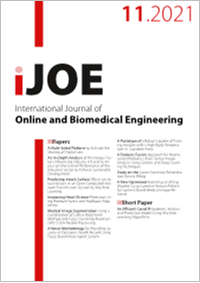A Multi-Sided Platform to Activate the Sharing of Digital Labs
DOI:
https://doi.org/10.3991/ijoe.v17i11.25183Keywords:
Business model, Sharing economy, Digital laboratory, Multi-sided platform, STEM educationAbstract
This paper presents a business model for digital laboratories (labs) to promote sharing in network organizations. Using information systems design science research methodology, a multi-sided platform is created and evaluated as a sustainable business model. Digital labs complement theoretical concepts in science, technology, engineering, and mathematics (STEM) to promote understanding of concepts, practical knowledge, and experiences. However, these labs are expensive and typically only available to local user groups, and not every university can offer the same or equivalent labs. Many universities are not well prepared to share labs with other institutions or to be part of a network organization. Among the findings are that digital labs are becoming more important, that there is an emerging trend from product- to service-oriented solutions, that a lab-sharing marketplace should provide targeted offerings for teaching and training, and that industry customers and students are showing interest in digital labs education content. The willingness to pay for students and industry is there, but for students the discussion remains ethical in nature as to who should pay for education. On the other hand, industry customers point out that there is a fear of losing intellectual property and security risks. This paper shows how a sustainable business model for digital labs activates lab sharing. Then universities can offer a better curriculum, instructors have more opportunities to provide a good education, and only then can students have access to more lab environments.
Downloads
Published
2021-11-15
How to Cite
Kammerlohr, V., Uckelmann, D., & Baalsrud Hauge, J. (2021). A Multi-Sided Platform to Activate the Sharing of Digital Labs. International Journal of Online and Biomedical Engineering (iJOE), 17(11), pp. 4–33. https://doi.org/10.3991/ijoe.v17i11.25183
Issue
Section
Papers



